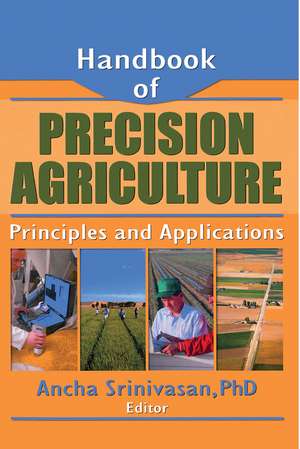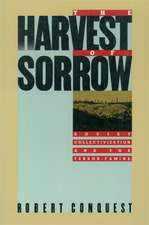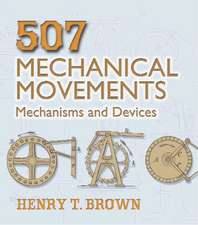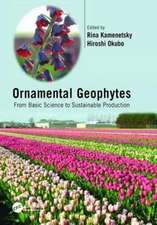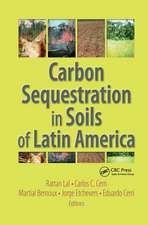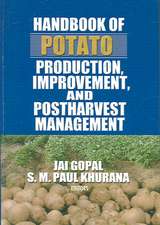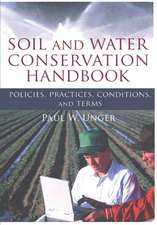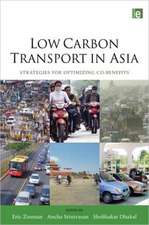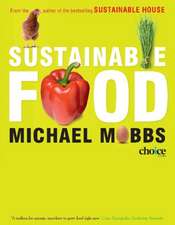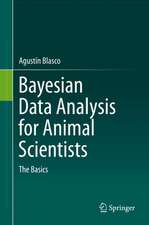Handbook of Precision Agriculture: Principles and Applications
Editat de Ancha Srinivasanen Limba Engleză Paperback – 31 aug 2006
In most developing countries, farming is the best safety net against hunger and keeping production costs under control without sacrificing crop yield is essential for survival. The Handbook of Precision Agriculture presents up-to-date research, field studies, and practical applications from around the world to help agricultural scientists and farmers work together to design a farming methodology that improves productivity, profitability, and sustainability. The book offers a comprehensive guide to basic principles and technologies, crop-specific applications, integrative strategies, economic and environmental concerns, and future trends in precision agriculture in different regions of the world.
Handbook of Precision Agriculture provides basic guidelines and recommendations for implementing precision farming worldwide to help improve farm profits while conserving the environment. Keeping the technical jargon to a minimum, 50 of the world’s foremost authorities on precision farming examine a wide range of subject areas, including agronomy, crop physiology, genetics and plant breeding, soil science, entomology, meteorology, agricultural extension, weed science, plant pathology, ecology, spatial information sciences, and economics. In addition to discussing theory and practice on field-level management, the book’s contributors discuss how to identify and manage field variability, and how to implement precision farming in selected crops and cropping systems, working from case studies that represent both regional and crop-specific contexts.
Topics examined in Handbook of Precision Agriculture include:
- essential technologies for precision farming
- site-specific nutrient management
- precision water management
- site-specific weed management
- precision management of rice
- site-specific management of cotton producing
- precision farming from a cropping systems perspective
- case studies of precision farming in Europe, Australia, and South America
- and much more
| Toate formatele și edițiile | Preț | Express |
|---|---|---|
| Paperback (1) | 1018.43 lei 43-57 zile | |
| CRC Press – 31 aug 2006 | 1018.43 lei 43-57 zile | |
| Hardback (1) | 1057.26 lei 43-57 zile | |
| CRC Press – 6 sep 2006 | 1057.26 lei 43-57 zile |
Preț: 1018.43 lei
Preț vechi: 1241.98 lei
-18% Nou
Puncte Express: 1528
Preț estimativ în valută:
194.88€ • 203.98$ • 162.20£
194.88€ • 203.98$ • 162.20£
Carte tipărită la comandă
Livrare economică 31 martie-14 aprilie
Preluare comenzi: 021 569.72.76
Specificații
ISBN-13: 9781560229551
ISBN-10: 1560229551
Pagini: 734
Dimensiuni: 156 x 234 x 37 mm
Greutate: 0.98 kg
Ediția:1
Editura: CRC Press
Colecția CRC Press
Locul publicării:Boca Raton, United States
ISBN-10: 1560229551
Pagini: 734
Dimensiuni: 156 x 234 x 37 mm
Greutate: 0.98 kg
Ediția:1
Editura: CRC Press
Colecția CRC Press
Locul publicării:Boca Raton, United States
Public țintă
ProfessionalCuprins
About the Editor,, Contributors,, Foreword (M. S. Swaminathan),, Preface,, Acknowledgments,, PART I: PRINCIPLES, TECHNOLOGIES, AND MANAGEMENT ISSUES,, Chapter 1. Precision Agriculture: An Overview (Ancha Srinivasan),, Introduction,, Basics of Precision Agriculture,, Tools for Implementation of Precision Agriculture,, Current Status, Uncertainties, and Future Trends,, Epilogue,, Chapter 2. The Role of Technology in the Emergence and Current Status of Precision Agriculture (John V. Stafford),, The Beginnings of Precision Agriculture,, The Basis for Precision Agriculture: Information Technology,, Spatial Location,, Basics of GPS,, Information Acquisition: Sensors,, Crop Condition,, Weed Detection,, Grain Yield,, Grain Quality,, Environment,, Assembling and Interpreting Information,, Utilizing Information: Application and Control,, Agrochemicals,, Patch Spraying: Philosophy of Approach,, Fertilizers,, The Role of Precision Agriculture in the Future of Agriculture-Technological Developments,, Chapter 3. Soil Sensors for Precision Farming (Sakae Shibusawa),, Introduction,, Current Developments and Use of Soil Sensors,, Future Development and Prospects,, Conclusions,, Chapter 4. Site-Specific Nutrient Management: Objectives, Current Status, and Future Research Needs (Silvia Haneklaus and Ewald Schnug),, Introduction,, Origins of SSNM,, Data Sources for SSNM,, Decision Making for SSNM,, SSNM for Different Nutrient Sources,, Interaction of SSNM with Other
Notă biografică
Ancha Srinivasan, PhD, is a Principal Researcher and Manager at the Institute for Global Environmental Strategies (IGES) in Hayama, Japan. Prior to joining IGES, he worked at premier institutions such as the International Crops Research Institute for the Semi-Arid Topics, the Hokkaido National Agricultural Experiment Station, and the Japan International Research Center for Agricultural Sciences (JIRCAS). Dr. Srinivasan served as a Principal Investigator for several funded projects in sustainable agriculture, information systems, and the environment, and recently developed a special interest in policy issues of adaptation to climate change in agriculture. His work has been widely published in national and international journals, and he serves on the editorial board of the Journal of Crop Improvement (Haworth).
Descriere
In most developing countries, farming is the best safety net against hunger, and keeping production costs under control without sacrificing crop yield is essential for survival. The Handbook of Precision Agriculture presents up-to-date research, field studies, and practical applications from around the world to help agricultural scientists and farmers work together to design a farming methodology that improves productivity, profitability, and sustainability. The book offers a comprehensive guide to basic principles and technologies, crop-specific applications, integrative strategies, economic and environmental concerns, and future trends in precision agriculture in different regions of the world.
